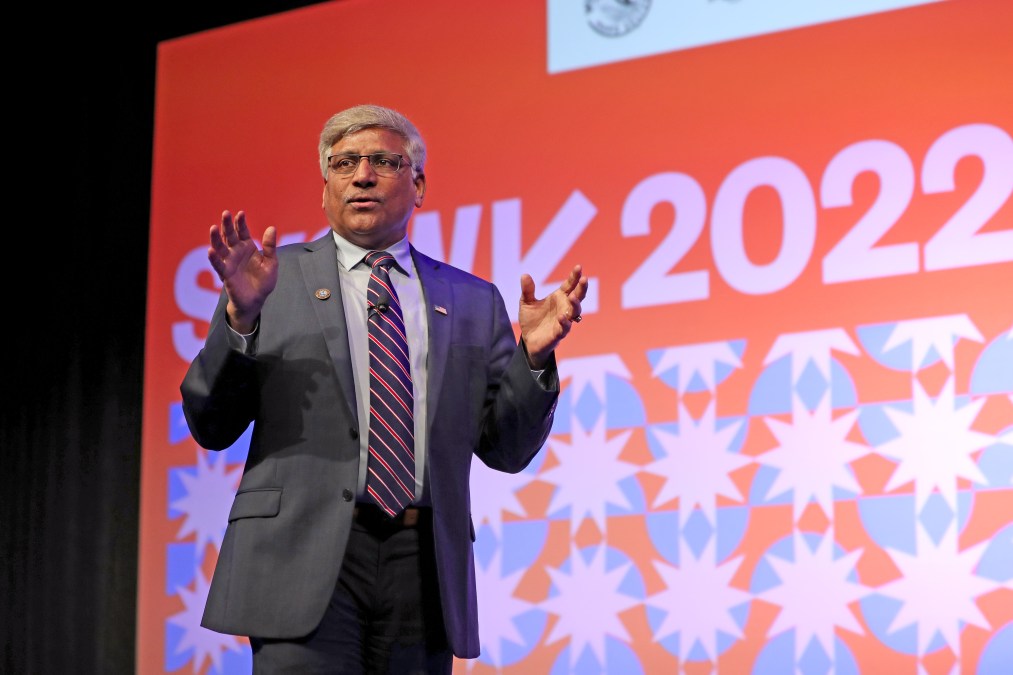NSF, Energy announce first 35 projects to access National AI Research Resource pilot

The National Science Foundation and the Department of Energy on Monday announced the first 35 projects to access the pilot for the National AI Research Resource, allowing computational time for a variety of investigations and studies.
The projects range from research into language model safety and synthetic data generation for privacy, to developing a model for aquatic sciences and using AI for identifying agricultural pests, according to a release from the NSF. Of those projects, 27 will be supported on NSF-funded advanced computing systems and eight projects will have access to those supported by DOE, including the Summit supercomputer at Oak Ridge National Laboratory.
“You will see among these 35 projects’ unbelievable span in terms of geography, in terms of ideas, core ideas, as well as application interests,” NSF Director Sethuraman Panchanathan said at a White House event.
The NAIRR, which launched earlier this year in pilot form as part of President Joe Biden’s executive order on AI, is aimed at providing researchers with the resources needed to carry out their work on AI by providing access to advanced computing, data, software, and AI models.
The pilot is composed of contributions from multiple federal agencies and private sector partners, including Microsoft, Amazon Web Services, NVIDIA, Intel, and IBM. Those contributions include access to supercomputers; datasets from NASA and the National Oceanic and Atmospheric Administration; and access to models from OpenAI, Anthropic, and Meta.
In addition to the project awards, NSF also announced the NAIRR pilot has opened the next opportunity to apply for access to research resources, including cloud computing platforms and access to foundation models, according to the release. That includes resources from nongovernmental partners and NSF-supported platforms.
Panchanathan described the appetite for the resource as “pretty strong,” noting that 50 projects have been reviewed as positive. But he said there aren’t yet resources to scale those 50 projects. “There is so much need, and so we need more resources to be brought to the table,” Panchanathan said.
While the pilot continues, there are also bipartisan efforts in Congress to codify and fully fund a full-scale NAIRR. Panchanathan and Office of Science and Technology Policy Director Arati Prabhakar underscored the need for that legislation Monday.
“Fully establishing NAIRR is going to take significant funding, and we’re happy to see that Congress has initiated action,” Prabhaker said, adding that the White House is hopeful “that full funding will be achieved.”



